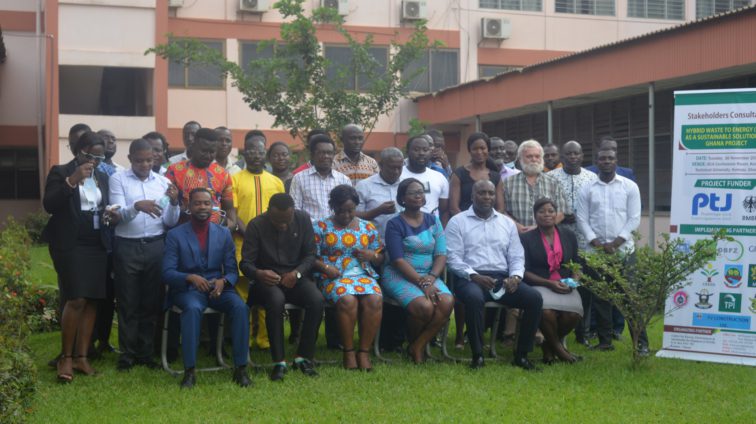The sanitation situation in Ghana is set to improve as a waste-to-energy project is being piloted at Gyankobaa in the Atwima-Nwiabiagya South district of the Ashanti Region.
The project, which will take 48 months to complete is expected to generate 400 KW of electricity from municipal waste. This will be scaled up to other parts of the country.
The German Government, through its Federal Ministry of Education and Research, signed a 5.8 million euro contract involving 4 institutions in Germany and 1 from Ghana.
These comprise 3 academic institutions, one research and development institution and a medium-scale industry.
The project’s overall aim is to develop concepts for waste segregation and the conversion of various fractions into energy by using biogas, pyrolysis and solar PV plants.
The project will also create business models to successfully replicate and propagate the models in 10 different regions in Ghana.
It will also build local experts to design, construct and maintain hybrid waste to energy facilities.
At a stakeholder consultation meeting at the Kumasi Technical University, the Project Coordinator and Head of the Renewable Energy Centre at the KsTU, Dr. Julius Ahiekpor said the project will begin full operation by the middle of 2022.
“We want to produce energy and train people to manage such projects in the future. It’s a pilot that has a research component,” he summarized.
How the project started
Germany's Federal Ministry of Education and Research (BMBF) of Germany in collaboration with Ghana’s Ministry of Environment, Science, Technology and Innovation, through the West African Science Service Centre in Climate Change and Adapted Land Use in Accra conducted feasibility studies on renewable energy resources in Ghana.
This was under the supervision of the Council for Scientific and Industrial Research.
Two scoping studies were commissioned around the same time by BMBF to examine the Bioenergy production and utilization in Ghana (BioGRAG) project and the possibility of producing bioenergy from cocoa husk through the Energize Ghana by Cocoa Husk (ENGHACOH) project coordinated by the University of Rostock and SRH-Berlin respectively.
The three individual studies and scoping reports crystallized into one project with the common objective of finding an appropriate treatment pathway for municipal solid waste generated in Ghana.
Latest Stories
-
Seidu Agongo: On December 7, it must be peace over power
2 mins -
2024 Election will take place on December 7; ignore misleading claims – EC
4 mins -
GPL 2024/25: Asante Kotoko bounce back with win over Aduana FC
31 mins -
GPL 2024/25: Gold Stars beat Vision FC to retain top spot
1 hour -
Ebo Whyte returns with ‘The 4Play’
2 hours -
2024/25 Ghana League: Heart of Lions sink Legon Cities to go third
2 hours -
Bright Simons: DBG, Ghana’s top development bank, goes for the jugular
3 hours -
Governance and Entrepreneurship consultant demands global support for Africa’s young farmers
3 hours -
Ghanaians reminded to prioritise regular health check-ups
3 hours -
Salah brace sends Liverpool 8 points clear
3 hours -
Leicester City sack manager Steve Cooper
3 hours -
Akwasi Sarpong wins AIBs 2024 Award for BBC OS coverage of Israeli hostage release
3 hours -
Gospel musician Adeline Baidoo shares inspiring story of triumph over adversity
3 hours -
Kwesi Yankah: Escape from Ghana
4 hours -
Musician DeThompson DDT drops new single Happiness
4 hours

